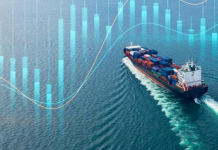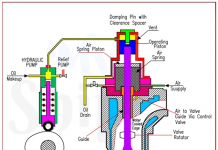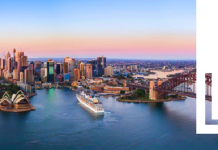
Q. How do the provisions of 2010 amendments to STCW Convention intend to improve the technical and interpersonal competence of seafarers?
Answer:-
1. Change of competency tables:
a. Need for deck officers to be competent in use of ECDIS.
b. Engineer officer to be able to operate pollution prevention equipment.
c. Additional emphasis is given to environmental management.
2. Leadership and Teamwork:
a. Substantial new competence requirements related to leadership, teamwork and managerial skills need to be added.
b. Assertiveness training for all seafarers, given its importance not only for those who have direct operations but also for lower grades who may have to communicate on safety matters with senior officers and shore personnel.
3. Training Record Books:
a. Mandatory for all deck and engine trainees to demonstrate competence through the use of onboard training record books, with completion to be supervised by officers responsible for onboard training.
4. Tanker training:
a. STCW now contains new comprehensive tables for training in oil, chemical and gas tanker operations, at both basic and advanced levels.
5. New Seafarer Grades and Certification:
a. STCW 2010 introduces extensive training and certification requirements for new grades of “able seafarer deck” and “able seafarer engine”. These are in addition to the current navigational and engine watch keeping requirements which are otherwise unchanged.
b. Now competence standards and certification for the position of ETO and ETR also been established.
6. Medical standards:
a. Additional medical fitness standards and requirements for certification have been introduced.
b. All medical certificates from 1st January 2017 must be as per STCW 2010 standards.
7. Prevention of alcohol abuse:
a. Specific limit introduced of 0.05% blood alcohol or 0.25mg/l alcohol in the breadth.
8. Mandatory security training:
a. Specific training and certification requirements for ship security officers, new security familiarization and training requirements for all grades of shipboard personnel. These include new anti-piracy measures.
9. Refresher training:
a. Additional emphasis given to the need for seafarer’s standards of competence to be maintained throughout their carriers.
b. All seafarers are required to provide evidence of appropriate levels of competence in basic and advanced safety training every 5 years. Much of this can be conducted onboard, but same will require training at shore based installations too.
10. Additional measures:
a. Min rest hr. period = 10 hrs. in 24 hrs. and 77 in 7 days.
b. Stricter checking by PSC for the above.
c. New training guidance for personnel working on ships operating in polar waters and DP vessels.
Q. Compare STCW 2010 with STCW 1995. Discuss the provisions of 2010 amendments to the STCW convention that intend to improve the technical and interpersonal competence of seafarers.
Answer :-
Under 2010 amendments following key new training requirements are added to improve the technical and interpersonal competence of seafarers.
1. Changes in competency tables :
a. Competency tables AIII/1 and III/2 have been updated to meet the emerging technologies. ERM engine room resourse management has been added. ERM requirements include –
i. Prioritization of resources.
ii. Assignment and allocation.
iii. Situational awareness.
iv. Effective communication.
v. Assertiveness.
vi. Leadership.
vii. Consideration of team experience.
b. Under table AIII/7 use of simulator training for ETO and ETR.
c. Need for deck officer to be competent in use of ECDIS.
d. All engineers incharge of engineering watch should have –
i. Knowledge of precautions to be taken to prevent pollution of marine environment.
ii. Knowledge of using of anti pollution equipments.
iii. Knowledge of approved methods for disposal of marine pollutants.
2. Leadership and teamwork : for deck and engine officers substantial new competence requirements related to leadership, teamwork and managerial skills are added.
3. Assertiveness training : for all seafarers not only those who are involved in direct operations but also for lower grades who may communicate on safety matters with senior officers, master &/or shore personnel.
4. Training record book: It will be mandatory for all deck and engine trainees to demonstrate competency through the use of onboard training record books, this must be supervised by officers certified and qualified for onboard training.
5. Tanker training: STCW now contains comprehensive tables for training in oil, chemical and gas tankers operation at both basic and advanced levels.
6. New seafarers grades and certification:
a. Extensive training and certification are required for new grades of “able seafarers deck” and “able seafarers engine”
b. These are in addition to the previous navigational and watch keeping requirements.
c. New competency standards and certification for ETO and ETR are also established.
7. Medical standards: Additional medical fitness standards and requirements for certification have been introduced.
8. Prevention of alcohol abuse: specific limit of 0.05 % blood alcohol or 0.25 mg/ltr alcohol in breath have been introduced.
9. Mandatory security training: specific training and certification requirements for ship security officer (SSO), new security familiarization and training requirements for all grades of shipboard personnel. These include new anti piracy measures.
10. Refreshers training: Additional emphasis given to the need for seafarers’ standards of competency to be maintained throughout their carriers. All seafarers are required to provide evidence of appropriate level of competency in basic and advanced safety training every 5 years.
11. Additional measures
a. New training guidance for personnel working on polar waters, DP vessels, LNG vessels.
b. Stringent checking of PSC for rest hours.
c. Introduction of modern training methodology including distance learning and web based training.
Comparison of STCW 1995 with STCW 2010:
STCW 95 chapter III deals with the standards required for engine room personnel under different capacities.
1. Chapter III/1 deals with mandatory minimum requirements for certification of Officer in charge of an engineering watch in a manned engine room or designated duty engineers in a periodic UMS engine room.
2. Chapter III/2 and III/3 deals with minimum standards required for chief engineer and 2nd engineer officer for main propulsive power of 3000 KW or more and between 750 KW and 3000 KW respectively.
3. Chapter III/4 deals with standards required for serving as engine room rating.
As per STCW 2010
1. Regulation III/5 deals with minimum requirement for certification of ratings as able seafarers engine in a manned engine room or designated to perform duties in a periodically UMS E/R.
2. Regulation III/6 deals with the minimum requirements for certification of ETO.
3. Regulation III/7 deals with the minimum requirements for certification of ETR.
4. Rest hours onboard have been increased from 70 hours to 77 hours per week for decent working of the seafarers onboard.
5. Stringent measures for preventing fraudulent certificate of competency (COC) to be followed in international market.
6. SSO/STSDSD course mandatory for all.
7. Human element has been emphasized in all the course contents. All management subjects and quality topics are added due to this.



